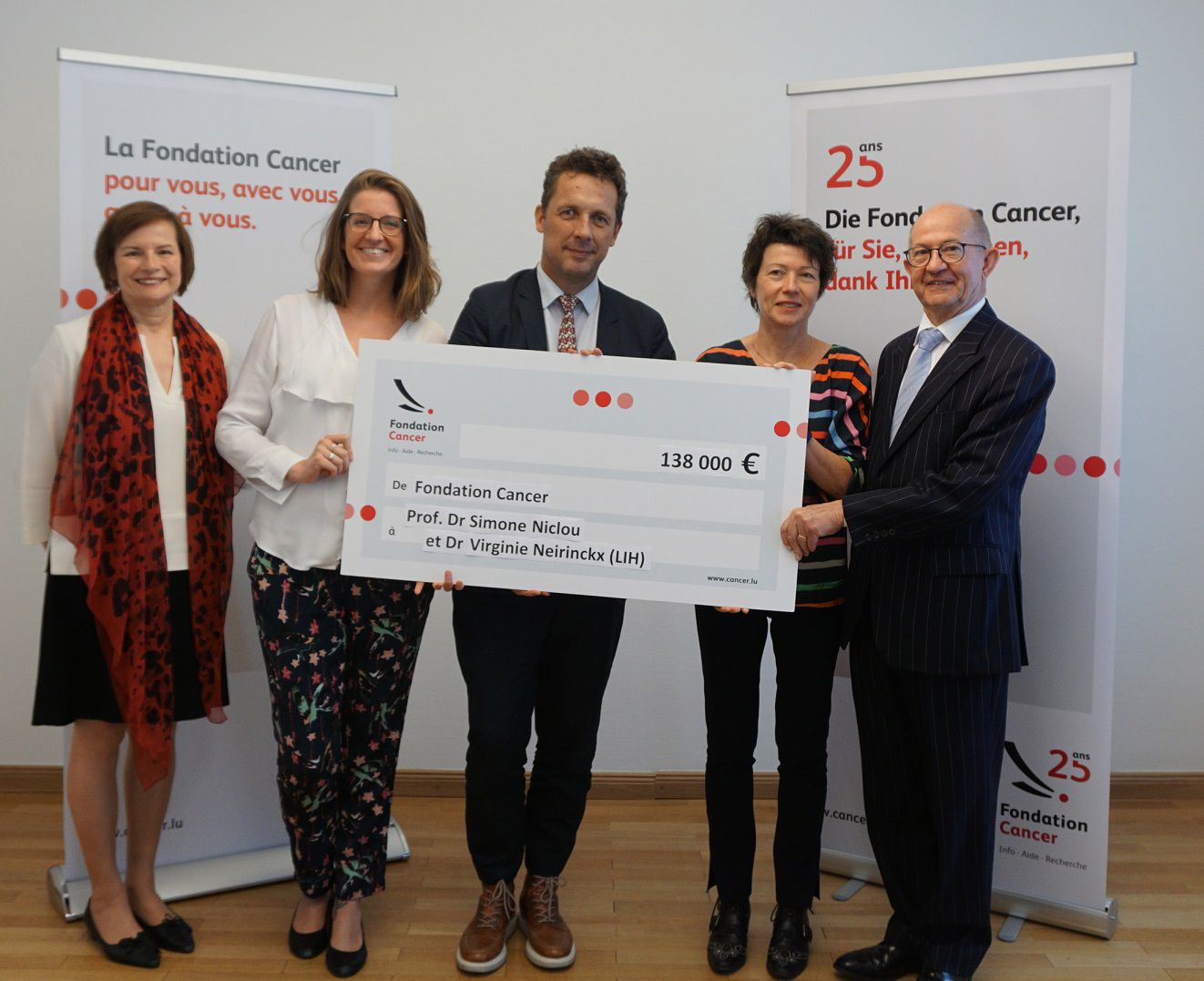The Cancer Foundation (Fondation Cancer) funds a research project on brain cancer at the NorLux Neuro-Oncology Laboratory in LIH’s Department of Oncology. It aims at investigating the therapeutic potential of a protein shown to inhibit Glioblastoma growth in preclinical studies.
On 12th June 2019, Dr Carlo Bock, president of the Cancer Foundation and Lucienne Thommes, Director of the Cancer Foundation, handed over a check of 138,000 € to Prof Simone Niclou, Director of the Department of Oncology and Head of the NorLux Neuro-Oncology Laboratory, and Dr Virginie Neirinckx, postdoctoral researcher, in the presence of Prof Ulf Nehrbass, CEO of LIH. With this, the Cancer Foundation supports the project entitled Soluble LRIG1 for pan-Receptor Tyrosine Kinase targeting in Glioblastoma that will be carried out by Dr Neirinckx.
Brain tumours account for about 2% of all cancers, and their treatment remains a major clinical challenge. Glioblastoma is the most common and aggressive form of brain tumour for which new therapeutic strategies are urgently needed. The funded project focuses on a protein named LRIG1 (Leucine-rich repeats and immunoglobulin-like domains 1) shown to be a powerful inhibitor of receptor tyrosine kinases (RTKs), which play a key role in cancer cell proliferation. In a study published in 2013, the NorLux Neuro-Oncology Laboratory showed that LRIG1 significantly reduces tumour growth in a patient-derived tumour model of Glioblastoma. Further findings demonstrated that LRIG1 does not target a single RTK. In fact, it blocks the activity of several RTKs simultaneously. This multi-target activity is of high therapeutic interest. It may circumvent the development of drug resistance as observed with most RTK inhibitors.
Thanks to the funding from the Cancer Foundation, the research team will be able to refine its knowledge on the properties and mechanism of action of LRIG1, with the ultimate goal of generating a therapeutic molecule derived from LRIG1 that could be tested and applied in patients in clinical trials. ‘The exploration of the therapeutic potential of LRIG1 will have a significant impact on the scientific community, particularly in the research fields of cancer and receptor tyrosine kinases', states Dr Neirinckx. ‘We hope that the multi-target effect of LRIG1 can be exploited for the treatment of Glioblastoma patients’, adds Prof Niclou.
A press release from the Cancer Foundation is available in French and German.
Watch a video in which Dr Virginie Neirinckx explains her research project (in French).

